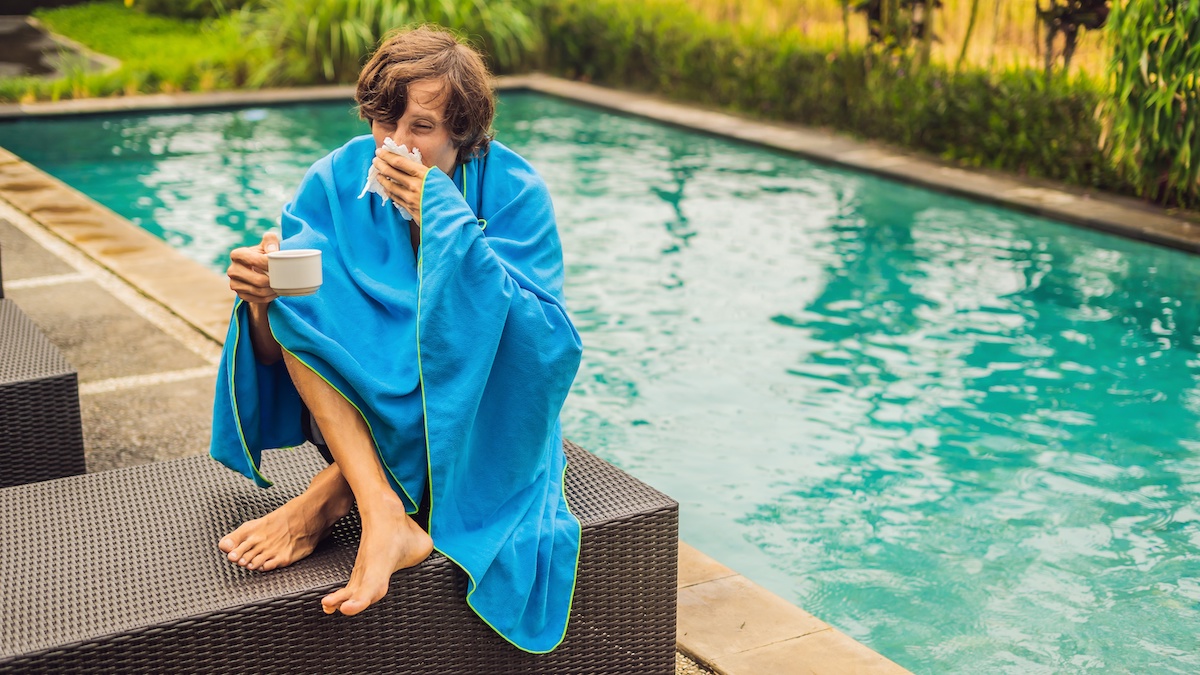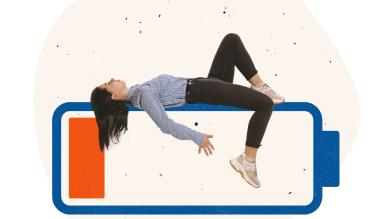
Post-stress syndrome: sick as soon as vacation arrives
The summer vacations are just around the corner and then this: migraines, infections, stomach problems. As soon as you've packed your suitcase, you're already lying flat and your vacation is over before it's even begun. Post-stress syndrome - also known as leisure sickness syndrome - strikes stressed people whenever they switch into recovery mode.
Post-stress syndrome often occurs when people under stress go on vacation and suddenly fall ill. Researchers at the University of Trier have found that people with high stress levels are particularly affected, which manifests itself in symptoms such as migraines, infections or stomach problems. The lack of noradrenaline during recovery is one possible cause.
According to a recent study by IU University, it can be directly linked to stress in everyday working life.
Strategies for coping include good stress management and regular exercise before going on vacation. A test called "Neuropattern" can help to determine the individual risk and take appropriate measures.
While others are well rested and tanned and talking about their vacation adventures, have you spent most of your time in bed? "Why does this always happen to me?" you ask yourself. In fact, it's usually the same people who regularly fall ill when their vacation is just around the corner.
This was discovered by a group of researchers from the University of Trier. They surveyed around 1,500 healthy test subjects and patients with acute physical or mental illnesses. The result: healthy people with little stress only very rarely suffer from post-stress symptoms (2.3 percent). In the mentally ill test subjects, the symptoms occurred in 20 to 35 percent.
Leisure sickness: high work pressure puts a strain on many
The phenomenon of "leisure sickness" or post-stress syndrome is not a recognized illness, but it is more than just a figment of the imagination. According to Prof. Dr. Stefanie André, an expert in health management at IU International University, it can be directly linked to stress in everyday working life.
In the representative study "Leisure Sickness: Exhausted instead of recovered" (2025), 1.9 percent of employees report so-called leisure sickness - i.e. physical complaints such as exhaustion or symptoms of illness that occur on days off or on vacation.
The results of the IU study clearly show what is bothering many employees:
- High working pressure (33.7 %)
- Lack of support from superiors and colleagues (30.0%)
- Unclear distribution of tasks (23.4 %)
- Unbalanced work-life balance (20.8 %)
- Imprecise tasks (20.8 %)
In addition, long working hours (17.3%) increase the risk of the body rebelling at precisely the time when rest is actually needed - for example at the weekend or on vacation.
Stressed people fall ill four times as often
The most common complaints include tiredness or exhaustion, sleep problems, irritability, headaches and cold symptoms.
The test subjects who most urgently needed a vacation and rest were most likely to suffer from post-stress symptoms, say the Trier scientists. The risk of falling ill on vacation has been four times higher for people under a lot of stress than for people who are not stressed.
Why are you always sick when you go on vacation?
The scientists also investigated why these symptoms break out during the recovery phases.
Professor Dirk Hellhammer from the University of Trier explains:
"Stress mobilizes the neurotransmitter noradrenaline particularly strongly in our central and autonomic nervous system. If the demands are particularly intense and long-lasting, the consumption of noradrenaline exceeds the synthesis of new noradrenaline. During periods of rest, too little noradrenaline is then released, leading to a disturbance in the balance of functions in the nervous and immune systems, which causes post-stress symptoms."
Ways out of post-stress syndrome
95.5 percent of respondents say that leisure time is a useful break from the stress of work (IU study). Only 4 out of 10 employees in Germany stated that they are unable to find the necessary relaxation in their free time .
Employers are also in demand here: according to the IU study, 63.6 percent of those surveyed would like more support from their company - for example through health offers or flexible break arrangements.
Well thought-out stress and break management can also help.
Relaxation exercises provide support, as do avoiding stress factors and good time management.
Plan small exercise sessions before your vacation
However, the best stress killer is still exercise. However, it's too late to start relaxing on vacation. It's best to incorporate small units of exercise into your daily routine weeks in advance and, for example, walk around the block during your lunch break. Exercising for 30 minutes three times a week should noticeably reduce our stress levels.
Test: Am I affected by post-stress syndrome?
Anyone who wants to know exactly whether they are suffering from post-stress symptoms can have this reliably measured using a diagnostic procedure ("neuropattern") developed by the Trier scientists. If such symptoms and complaints are detectable, a combination of medication and dietary supplements with stress and break management can be helpful.
The free online yoga course takes place live on YouTube every Tuesday at 20:00 . With over 12,000 registered participants, it is Germany's largest online yoga course. You too can become part of our constantly growing yoga community.
More info: Online yoga on YouTube





.jpg/858f1aac-2a2e-3959-ab68-6c5d950bcbd0/858f1aac-2a2e-3959-ab68-6c5d950bcbd0?imageThumbnail=2)



